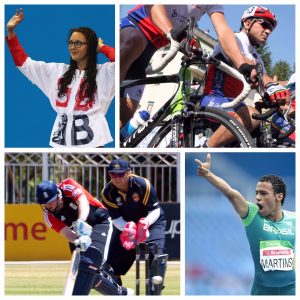World Intellectual Impairment Sport holds eligibility workshop to grow sport in China

Representatives from the International Federation for Intellectual Impairment Sport (World Intellectual Impairment Sport) held an eligibility workshop on Wednesday (15 November) in Guangzhou, China, as part of a bid to grow sport in the country.
The session is part of a five-day visit to China attended by World Intellectual Impairment Sport Vice President Robyn Smith, Head of Eligibility Jan Burns and Australian coach Kelly Bowen. The project is supported by World Intellectual Impairment Sport member Sport Inclusion Australia and their Asian Sports Partnership.
The aim is to build sport for people with intellectual impairments. Historically China have had no athletes registered with World Intellectual Impairment Sport or at the Paralympic Games in the impairment group.
The workshop follows on from a week-long basketball training session held by Bowen for students and teachers in Shenzhen in July 2017.
On Tuesday (14 November) Bowen carried out more training, returning to the Yuanping Special School in Shenzhen. Smith also delivered a coaching video to help with their development.
Wednesday’s eligibility workshop at the Guangzhou Disabled Persons Sport Centre saw Chinese psychologists given advice and information. Eligibility is the first step in the athlete classification process. It ensures any potential athletes have a recognised impairment before they can go on to be classified to compete.
“Working closely with China to assist them establish their eligibility process is an historic moment for World Intellectual Impairment Sport,” Smith said. “Partnering with Sport Inclusion Australia’s Asian Sport Partnership to share this vital information will assist China’s athletes with intellectual impairment compete in World Intellectual Impairment Sport and International Paralympic Committee pathways.”
Smith has been working with the Chinese National Paralympic Committee through the Australian Department of Foreign Affairs and Trade.
The trip also provided an opportunity to meet with colleagues from World Intellectual Impairment Sport Asia and develop links with regional partners.










